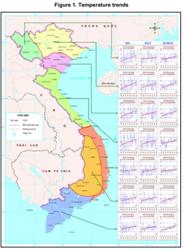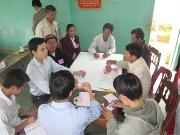Tim Magee’s new book, a Field Guide to Community-Based Adaptation is supported by a user-friendly website, updated by the author, where readers can download online resources and field assignment templates for each chapter which they can tailor to their own specific projects.
The book itself is a field guide which follows a family of four courses in community-based adaptation to climate change—OL 341, 342, 343 and 344. The assignments, explanations, examples, discussions and lesson plans follow these courses exactly. By looking at the resources on the Field Guide’s webpage you can get a sense of what the individual assignments are like by looking at the assignment examples.
Each chapter is a field assignment for field staff to carry out with a community in order to develop a real on-the-ground project. Each chapter is therefore one step in the process of assessing community need, designing and funding a project, launching the project in partnership with the community, and handing the project over to the community at grant’s end.
At the end of each chapter in the Field Guide is a Section Called “Chapter Resources” where you can get suggestions for project development and find recommended resources for that chapter.
At TimMagee.net, on the Field Guide’s webpage, readers can also download example assignment templates for each of the chapters such as project outlines, log frames, budgets and a letter of inquiry for presenting to a donor. These are downloaded as Microsoft Word and Excel files so that readers can edit and modify them to suit their own projects design. These documents are then used both in project management and as donor presentations.
Each of the chapter’s resources include live links to resources that are specific to each chapter in the book. These downloadable resources include scientific analyses of adaptation activities that establish whether they work, and handbooks and manuals that give detailed how-to information on subjects as varied as climate smart agriculture or the importance of hand washing for hygiene. There are also field guides and lesson plans for conducting workshops with community members.
A separate page organizes resources by topic—such documents on participatory vulnerability and capacity analysis, participatory mapping, conservation agriculture, and soil and water conservation.
On this page you can read the table of contents and the book’s introduction—plus you can download a Kindle Edition sample of the book.
We hope that you enjoy this new online resource which is in support of our Diploma Program: OL 340 Community-Based Adaptation to Climate Change.
Enjoy!


